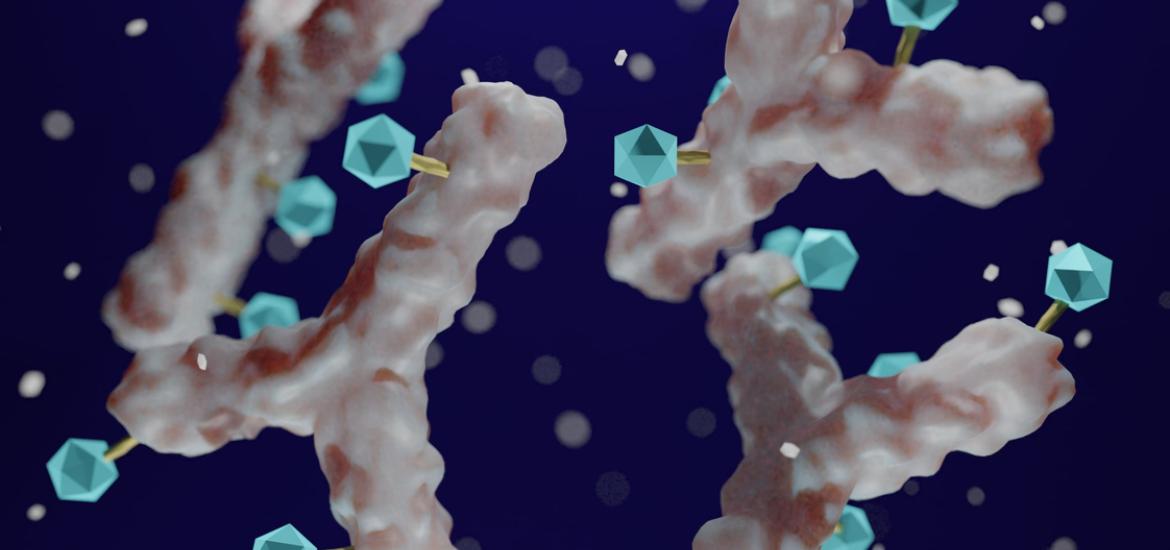
Enhertu pushes on the HER2-low door once again
Daiichi and AstraZeneca claim another breast cancer success, and further evidence of the ADC’s activity in very low HER2 expression.
Daiichi and AstraZeneca claim another breast cancer success, and further evidence of the ADC’s activity in very low HER2 expression.

Might Enhertu’s benefit threshold have to be redefined once again? Daiichi Sankyo and AstraZeneca declared this morning that the Destiny-Breast06 trial was a success, and hinted at signs of efficacy in a closely watched subgroup of patients described as HER2-ultralow.
The trial, in ER-positive/HER2-low metastatic disease, was conducted in an earlier setting to Enhertu’s approved use in HER2-low breast cancer. But the study wasn't only about moving up the treatment protocols. All eyes were on that ultralow subgroup, to see if the relatively new HER2-low definition already needed a rethink.
Full results will be required to answer that question properly, as a press release contained little actual data. But it did mention early trends toward an overall survival benefit that, combined with what sounds like an emphatic hit on the primary progression-free survival endpoint, probably means that label expansion into HER2-low is in the bag.
Sellside analysts reckon approval in this earlier HER2-low setting is worth $2.5bn in extra sales to Daiichi and Astra. Earlier today Astra shares touched a record high in London.
The details
Destiny-Breast06 recruited a pre-chemotherapy population that had progressed after first-line treatment with a CDK4/6 inhibitor plus endocrine therapy, or two lines of endocrine therapy. Destiny-Breast04, which supported Enhertu’s groundbreaking 2022 HER2-low approval, was conducted in patients who had been failed by chemotherapy, endocrine therapy and, in some instances, CDK4/6 inhibitors.
The primary endpoint of 'Breast06 was measured in the HER2-low population, defined as having an immunohistochemistry (IHC) score of 1+, or IHC2+ with a negative in-situ hybridisation score (ISH-). Of the 713 patients in this group, a “statistically significant and clinically meaningful improvement” in PFS was seen in those treated with Enhertu compared with those on standard-of-care chemotherapy, Daiichi and Astra said.
The trial also contained 153 ultralow patients, defined as IHC 0 with membrane staining; IHC >0<1+. While the partners stressed that this subgroup was not powered to detect statistical significance, how these patients fare compared with the HER2-low group will be of vital interest when full results are presented.
So far, the partners have only revealed that the overall population saw a statistically significant and clinically meaningful improvement in PFS, with a “consistent” clinically meaningful improvement between HER2-low and HER2-ultralow expression.
On overall survival, data are immature but early trends are apparently evident in the HER2-low group and in the overall trial population.
Rethinking the biomarker?
With ASCO a matter of weeks away it could be some before these data are presented; ESMO in September is a potential venue. But Enhertu’s previous successes have already had some researchers imagining a scenario where the definition of HER2-low is expanded to include tumours lacking HER2 amplification.
The assays and methods currently used to determine HER2 status are arguably not sensitive enough to get regulators on board with such a paradigm shift. And even to kickstart that debate the Destiny-Breast06 HER2-ultralow subgroup will have to show very little divergence from the HER2-low population.
But with this trial Daiichi and Astra are clearly hoping that Enhertu can trigger another shift in the thinking about HER2 expression.
1927













